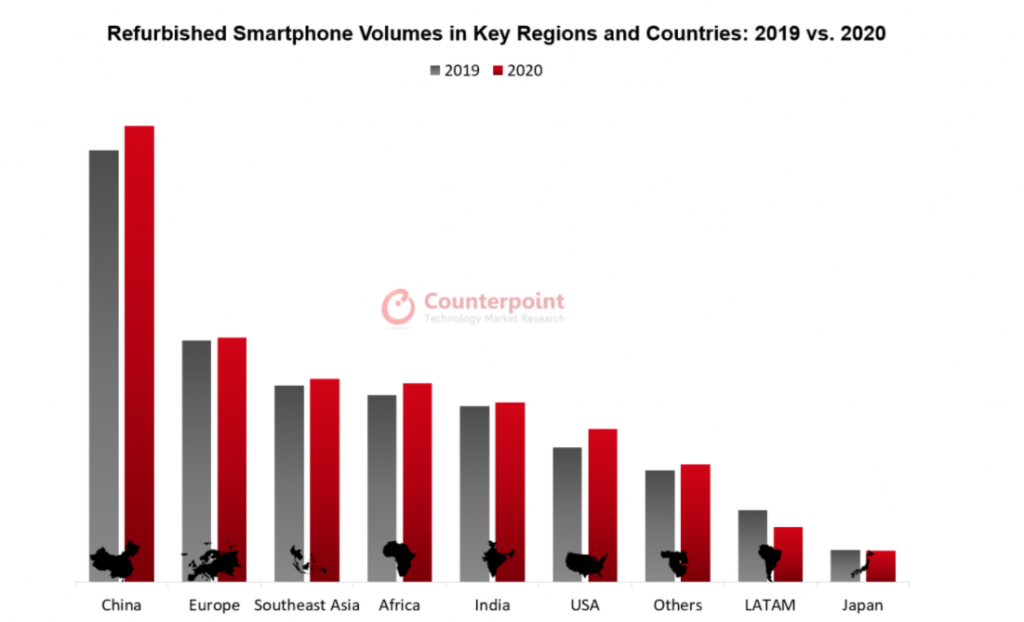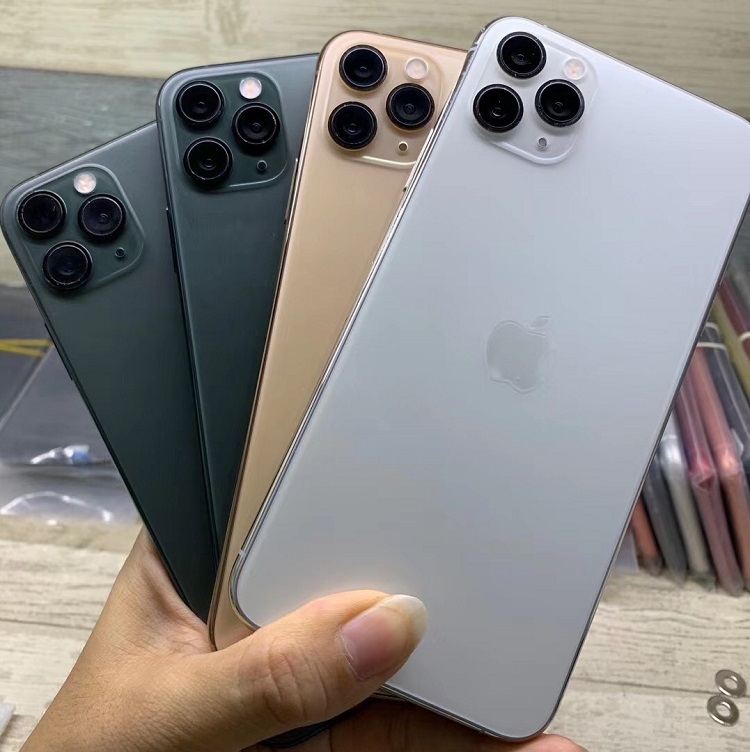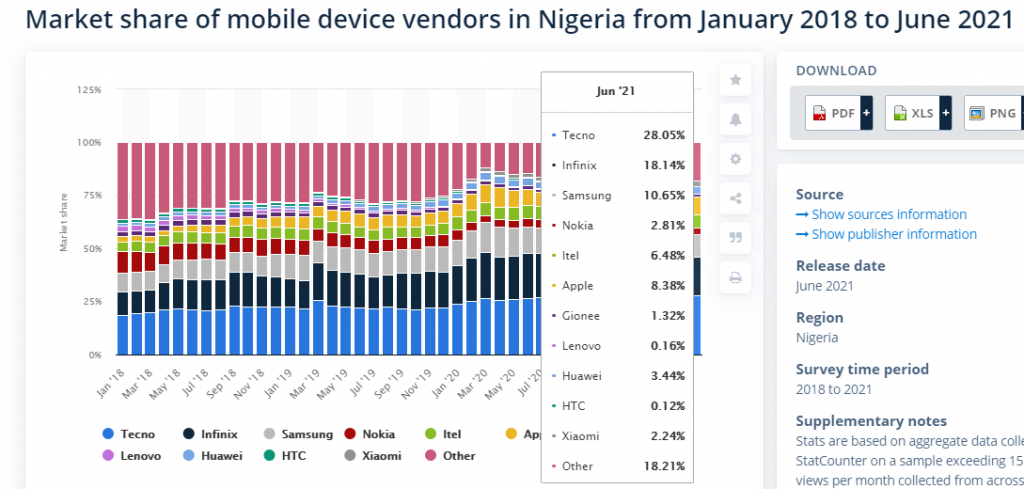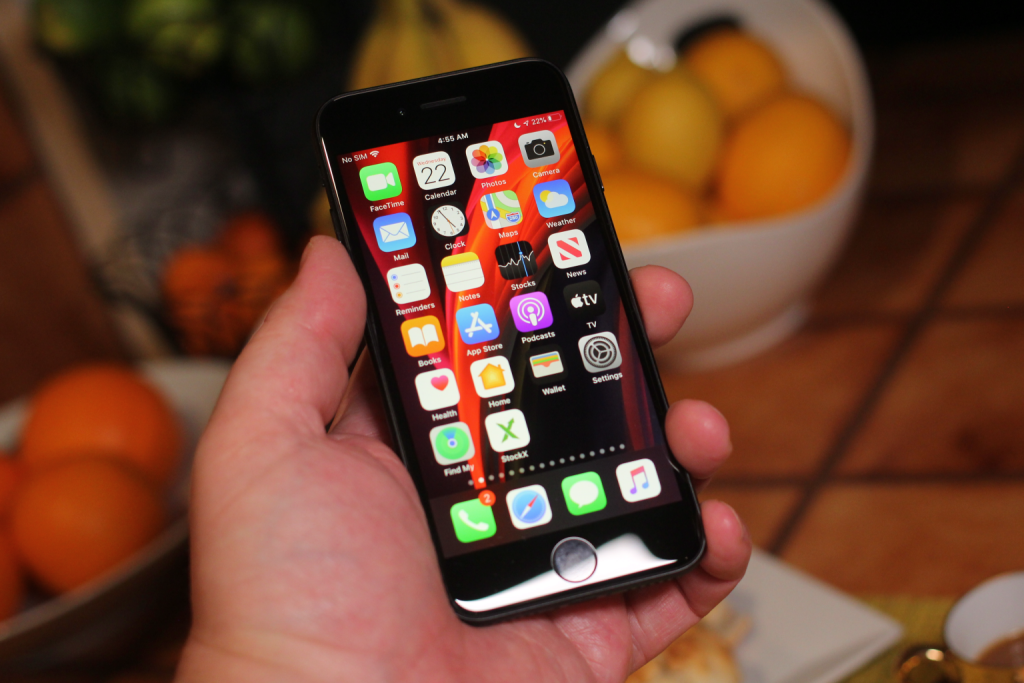Africa is currently one of the fastest-growing mobile phone markets in the world. The region had 456 million mobile subscribers at the end of 2018, and that number is expected to grow by another 167 million by 2025, according to GSMA Intelligence.
To better understand the growth, the report shows that over the next five years, the sub-Saharan Africa mobile phone market is expected to grow by 4.6% – as opposed to 3% globally.
One of the more prominent contributors to this growth is the used phone market on the continent. According to Counterpoint, the second-hand market in the region helped the volume of the global refurbished smartphone market grow by about 4% in 2020 despite the pandemic. It is expected that the growth will be even higher in 2021.


Apple dominates the second-hand phone market
Of all smartphone makers, Apple has the biggest second-hand market. Counterpoint‘s Research Director, Jeff Fieldhack, revealed that there has been no slowdown in the appetite for iPhone within the secondary market.
He added that Apple’s share in the secondary market over the second half of 2020 was over 44%. In comparison, its total smartphone shipment (New phone) was just 13%.
Similar to the global outlook, its African market saw a similar trend, in particular, South Africa, Nigeria, Egypt and Kenya.


For instance in Nigeria, the growth which the secondary market has witnessed is due to several reasons. But perhaps its most significant barrier is poverty, which has a direct impact on the purchasing power of the population.
This can be seen in Statista smartphone charts which shows that cheaper Chinese brands like Techno (28.05%) and Infinix (18.14%) have a bigger market than luxurious brands like Samsung (10.65%) and Apple (8.38%) in Nigeria.
However, when it comes to the secondhand market, it’s a bit different as the Apple brand is the most prefered of all the brands.
Looking at the cost of Apple smartphones and the obvious barrier of spending power, there are questions to be answered as to why it beats cheaper brands like Techno and Infinix when it comes to the second-hand market.
Apple’s secondary market ASPs (average selling prices) are almost three times higher than the average of all its competitors.


Seun, a UK-used smartphone vendor told Technext that people prefer Apple mainly because it doesn’t lose value too much even when they want to resell.
“Most people can swap it for another one of their choices with just a low amount added.”
Another vendor, Tosin believes it’s because refurbished Apple phones have more reputation than those of other brands. “Second-hand Benz has more reputation than a new Kia. Customers know that buying second-hand Apple will give them more reputation than buying new of other brands.”
Several Apple users agree with Tosin on the reputation/status conferral angle. Ganiyat, an iPhone user told this correspondent that she bought her iPhone 10 to be like her friends. “The least phone my friends use is iPhone 10, using any other isn’t really an option.”


Another user, Richard says he likes it because it is durable and its camera is dope compared to other phones.
He’s not alone as Mrs Tobore also iterated that Apple phones are reliable and durable but also added that the security of data it provides is also attractive.
Other users that were interviewed also mention reasons like choice, class, social acceptance and re-sale value. Some even confessed that Apple second-hands were cheaper.
Generally, used phone retailers confirmed reports that the Apple brand sells faster. Glen Cardoza, senior research analyst at Counterpoint Research says it’s because Africa is showing a higher proportion of new businesses and improvements in domestic tech and repair capabilities.
On the other hand, Tosin believes that additional trade-in offers from the brand are increasing the available amount of used phones flowing in from Europe.
In Summary
The refurbished iPhone retailers can cater to the current gap in Apple product sales and could compete with ASPs of established retailers.
However, as prices continue to dominate purchase considerations, demand for cheaper but sophisticated alternatives will continue to rise.
Although Apple is leading Africa’s second-hand market, it is still virtually untapped. With demand still growing and missing infrastructure slowly being put in place, there is an immense revenue potential for traders in the market.






